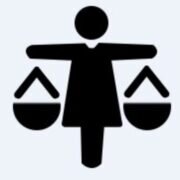Best Technology Transactions Lawyers in Dehradun
Share your needs with us, get contacted by law firms.
Free. Takes 2 min.
List of the best lawyers in Dehradun, India
About Technology Transactions Law in Dehradun, India
Technology transactions involve legal and business aspects concerning the development, licensing, and transfer of technology. In Dehradun, a growing technology hub in India, these transactions are becoming increasingly common. The city's tech ecosystem is supported by various educational institutions, IT parks, and startups. Legal dealings in this field often include software licensing, hardware procurement, IT services agreements, and joint ventures. Understanding the regulatory environment is crucial for companies and individuals involved in these transactions to ensure compliance and protect their intellectual property rights.
Why You May Need a Lawyer
There are several situations where seeking legal advice in technology transactions may be necessary:
- Intellectual Property Protection: To ensure that your software, inventions, or other technological assets are legally protected.
- Contract Drafting and Review: For preparing, reviewing, and negotiating terms of licensing and service agreements.
- Regulatory Compliance: Navigating the complex legal regulations surrounding data protection, privacy, and cyber laws.
- Dispute Resolution: Addressing any conflicts that arise in technology-related agreements or transactions.
- Cross-border Transactions: Handling international technology transactions that may involve multiple jurisdictions.
Local Laws Overview
Dehradun, like the rest of India, is subject to national laws concerning technology transactions but also has local nuances worth noting. Key laws include:
- Information Technology Act, 2000: The principal legislation governing cybersecurity and electronic commerce in India.
- Intellectual Property Laws: Covering patents, copyrights, and trademarks crucial for protecting technology assets.
- Data Protection Regulations: Compliance with current laws on data privacy is critical, although Dehradun may further align with India's expected personal data protection regulations.
- Contract Law: The Indian Contract Act of 1872 governs the agreements and contracts involved in technology transactions.
Frequently Asked Questions
1. What is a technology transaction?
A technology transaction refers to the legal and business arrangements involved in the development, acquisition, licensing, and sale of technology, software, or hardware.
2. Why is intellectual property important in technology transactions?
Intellectual property rights protect innovations and technological creations, granting the owner exclusive rights to use and commercialize their products.
3. How can I protect my tech startup’s intellectual property in Dehradun?
Register your inventions, copyrights, and trademarks with the appropriate government body and seek legal counsel to enforce these rights.
4. What should be included in a technology licensing agreement?
A robust licensing agreement should cover terms of use, rights granted, duration, renewal options, fees, and clauses for confidentiality and dispute resolution.
5. Are digital signatures legally valid for technology transactions in India?
Yes, digital signatures are legally recognized under the Information Technology Act, 2000, and are widely used for signing digital documents.
6. How do I ensure compliance with data protection laws?
Implement data protection measures, obtain consent for data usage, and consult with legal experts to comply with applicable data protection laws like the IT Act's privacy rules.
7. Can technology transactions involve cross-border elements?
Yes, technology transactions can be international, requiring compliance with laws in multiple jurisdictions.
8. How should disputes in technology transactions be resolved?
Disputes can be resolved through arbitration, mediation, or litigation, depending on the provisions in the contract and the parties' preferences.
9. What are common pitfalls in technology agreements?
Common issues include unclear licensing terms, insufficient IP protection, ignoring data privacy requirements, and inadequate dispute resolution clauses.
10. How do I choose the right lawyer for technology transactions?
Select a lawyer with expertise in technology law, experience in technology transactions, and a proven track record of handling similar cases.
Additional Resources
If you need further information or assistance, consider the following resources:
- National Association of Software and Service Companies (NASSCOM): An industry body representing technology companies in India, offering insights and guidance.
- Department of Information Technology, Dehradun: A local governmental entity which may provide assistance and information on technology infrastructure and regulations.
- Indian Patent Office: For all matters related to patent registration and intellectual property protection.
Next Steps
If you require legal assistance with technology transactions in Dehradun, consider the following steps:
- Research and Identify: Research law firms specializing in technology law in Dehradun and identify lawyers with relevant expertise.
- Initial Consultation: Arrange consultations with selected lawyers to discuss your specific needs and their experience with similar cases.
- Evaluate and Choose: Assess your options based on expertise, experience, and likely costs to select the right legal counsel.
- Engagement: Once you have chosen a lawyer, formally engage their services with a written agreement outlining the scope and terms of service.
Lawzana helps you find the best lawyers and law firms in Dehradun through a curated and pre-screened list of qualified legal professionals. Our platform offers rankings and detailed profiles of attorneys and law firms, allowing you to compare based on practice areas, including Technology Transactions, experience, and client feedback.
Each profile includes a description of the firm's areas of practice, client reviews, team members and partners, year of establishment, spoken languages, office locations, contact information, social media presence, and any published articles or resources. Most firms on our platform speak English and are experienced in both local and international legal matters.
Get a quote from top-rated law firms in Dehradun, India — quickly, securely, and without unnecessary hassle.
Disclaimer:
The information provided on this page is for general informational purposes only and does not constitute legal advice. While we strive to ensure the accuracy and relevance of the content, legal information may change over time, and interpretations of the law can vary. You should always consult with a qualified legal professional for advice specific to your situation.
We disclaim all liability for actions taken or not taken based on the content of this page. If you believe any information is incorrect or outdated, please contact us, and we will review and update it where appropriate.








